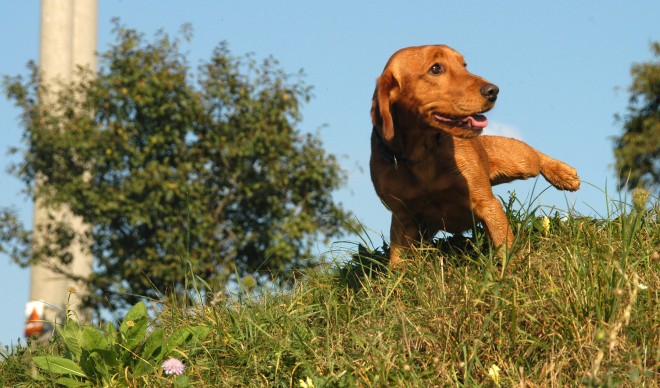

Most dog owners very quickly build up a basic level of understanding regarding what is normal for their own dog, and what is not, often without even thinking about it-for instance, you are probably very familiar with how often and at what times your dog needs to go to the toilet, how far they like to walk, how much they will eat, the appearance of their coat, and even their general demeanour and mood, and how enthusiastic (or otherwise) they are about certain things!
Many dog owners will also go further than this, and keep a record of many of their dog’s healthy norms, such as their weight, heart rate, respiration rate and various other things, which can be useful to refer back to as a baseline as your dog ages, or if you are starting to wonder if there is something wrong with your dog but you’re not sure what.
However, one thing that many dog owners often overlook or don’t pay much attention to is their dog’s urine output, and what this can tell you about their health! You could probably describe (if you had to!) what your dog’s normal faecal output is like, in terms of volume, frequency, colour and firmness, even if you have no desire to know these things, because you really can’t help but notice them when you pick up after your dog; but naturally, checking out your dog’s urine can be more of a challenge!
However, there are a lot of valuable things that you can find out from your dog’s urine, even without the help of your vet, and so it is a good idea to try to witness your dog in mid-flow now and then or even take a small sample, as a quick glance at it can tell you a lot about any potential problems in the making and your dog’s general health.
In this article, we will examine in more detail what your dog’s urine can tell you about their health. Read on to learn more!
Exactly how much your dog urinates in any given day can be very hard to establish, particularly if you have a male dog that is apt to pee on lots of things in small amounts rather than waiting to let go when they really need to!
However, you will probably soon get used to how often your dog needs to go to the toilet, although this can vary too depending on how much they are drinking, which once more, depends on a range of factors such as what they are fed, how hot it is, and how active they are!
If your dog suddenly seems to need to urinate more often than usual, or even starts having accidents in the house, this may indicate a problem in the making.
As mentioned, sussing out how much your dog pees can be very challenging. However, if your dog asks to go out a lot and seems to urinate a significant amount each time, review how much they are drinking to cause this, as excessive water intake, and subsequent urination, can indicate a range of potential problems.
Similarly, if your dog strains to urinate with little to no success, this too may mean that something is amiss.
It is important to get used to the norms for your own particular dog, as of course, the size and breed of your dog will greatly affect how much they urinate! Don’t use previous experience of, say, a Golden retriever as the baseline for the output of a smaller dog like a Shih-Tzu!
Getting close enough to your dog’s urine output to smell it might sound like one of the most disgusting things that you could possibly do, but the smell of your dog’s urine can tell you a lot, and you don’t actually need to get right up close and personal with it to do so!
Your dog’s first pee of the day will of course be stronger smelling, darker and more concentrated than later on, so take that into account, but healthy urine should not smell of anything significant unless you get your nose within a few inches of it.
Urine that does smell very strong (and that cannot be explained by being due to having waited a long time to go to the toilet) may indicate a problem, and other distinctive scents can also indicate other issues too. Urine that smells faintly sweet and rather unusual may be due to high glucose levels in the blood, which may indicate the onset of diabetes, so take note of any peculiar urine smells to get a head start on any issues!
The colour of your dog’s urine will vary depending on how concentrated it is. The first pee of the day will be darker than later on, but normal healthy urine is a light to medium straw colour. Lighter urine means that it is more dilute, and may mean that your dog has drunk more, while a very dark or concentrated colour may mean that your dog is not drinking enough, or has to wait for too long between toilet breaks.
If the urine is cloudy, orange, pink-tinged or otherwise not normal, this may indicate a problem that will need to be checked out by your vet.
 What Sort Of Veterinary Care Do Guinea Pigs Need?
What Sort Of Veterinary Care Do Guinea Pigs Need?
 How To Keep A Welsh Springer Spaniels Coat Looking Good
How To Keep A Welsh Springer Spaniels Coat Looking Good
 Getting Your Cat Fit And Healthy By Having Fun
Getting Your Cat Fit And Healthy By Having Fun
 Find the Best Feeding Bowl For Your Dog
Find the Best Feeding Bowl For Your Dog
 Horse Tips On How To Winter Feed & Keep The Bills Down
Horse Tips On How To Winter Feed & Keep The Bills Down
 The Five Most Common Reasons For Frequent Urination In The Dog
The Five Most Common Reasons For Frequent Urination In The Dog
Copyright © 2005-2016 Pet Information All Rights Reserved
Contact us: www162date@outlook.com